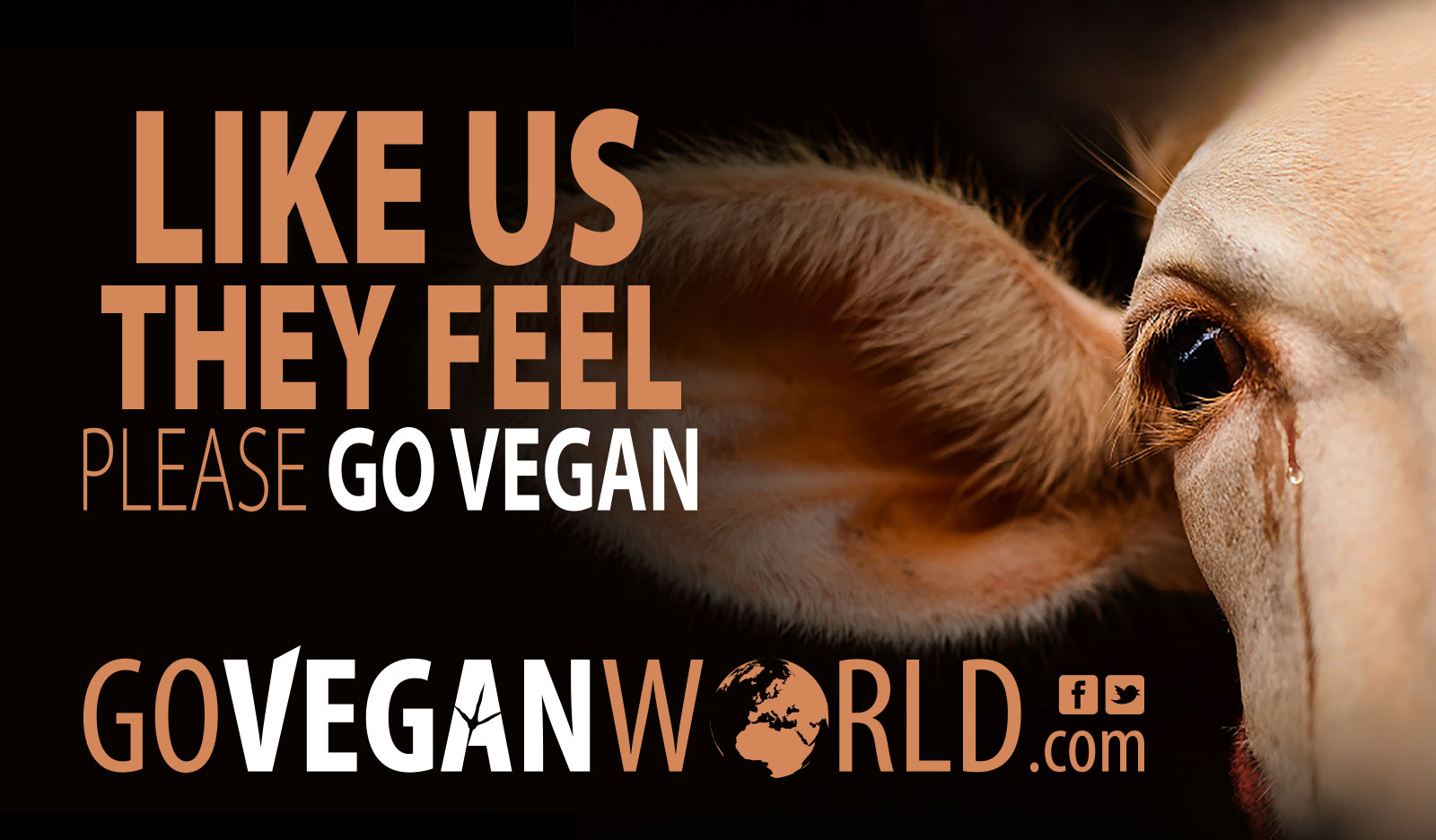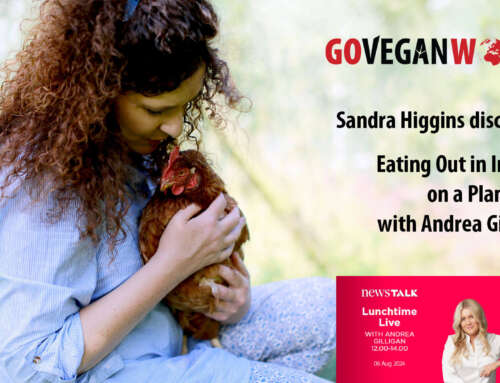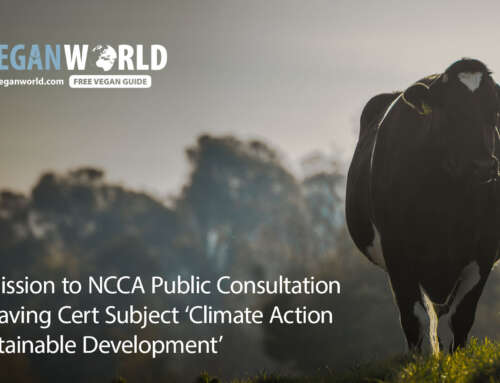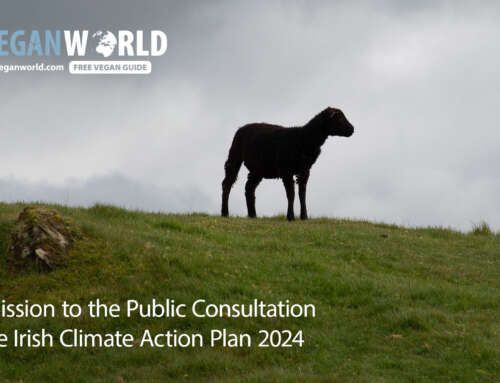Is Veganism a Matter of Opinion?
I had a conversation with a good friend this week. I like and respect her but she is not vegan. During the course of our discussion I mentioned that if she read the evidence supporting animal rights, it is highly unlikely that she would not become vegan. She contradicted me, saying that I was entitled to my opinion on veganism just as she was entitled to her opinion, which disagreed with veganism.
Veganism, of course, is not a mere matter of opinion. It is the moral conviction that it is wrong to unnecessarily harm and kill other animals based on facts: the fact that animal use by humans is unnecessary; the fact of their sentient capacity to feel; the fact of their conscious awareness of themselves and their lives; the fact that they have rights which we violate when we are not vegan; and the fact that they matter morally.
Vegans do not necessarily have very different moral values to anyone else. Most people acknowledge that companion animals feel. They would not unnecessarily harm or kill a cat or a dog. In fact, most people in the Western World find the practice of eating cats and dogs in some countries abhorrent. But it is no more abhorrent than our own practice of eating the bodies of mammals, birds and fishes. Rationally, we must at least extend our moral concern for companion animals to all the animals who share salient characteristics with them.
How Vegans Became Vegan
This recognition, that we share the salient characteristic of sentience, is how vegans become vegan. We don’t decide to eat plants or stop wearing leather as a result of some whimsical figary. We become aware of the fact living as a non-vegan is predicated on systematic violence that is so abhorrent that most of us are unable to witness it. In fact, living as a non-vegan is predicated on a deep-seated form of oppression by our human species that dates to our domestication of other specie,s a very short time ago in the history of our evolution: a form of oppression, bullying, and exploitation for profit that has caused the most despicable violence against the largest number of gentle, sentient, harmless, innocent beings in the history of life as we know it. It dawns on us that living in this way contradicts how we feel and think about other life forms, and about ourselves.
Most of us flinch from violence. We don’t have to know other animals very well to feel uncomfortable when we see them suffer and die. As vegans and activists who work for their rights, we see them accurately, as beings who share our instinct to avoid pain and stay alive. This is not a fanciful or anthropomorphic view of other lives. Animal sentience is a simple scientific fact. As a consequence, vegans live in a way that avoids harming them to the best of our practical ability.
Sentience & Speciesism
We have grown up in speciesist cultures that segregate some animals into a category we care about, and others into a category that doesn’t matter to us, despite the fact that the chickens, pigs, cows, ducks, turkeys, geese, goats, sheep and fishes we eat; the cows, sheep, foxes, minks, and others we wear; the mice, rats and primates we experiment on; and the elephants, tigers and others we use for entertainment, all share our sentient capacity to feel, our cognitive capacity to reason and our will to live. In fact, we operate according to the irrational belief that while the dogs and cats we use as companions are worthy of our moral concern, dogs and cats used in animal experiments or for labour are not.
Our selective acknowledgement of sentience, as well as our lack of courage in acknowledging the harm we inflict as non-vegans, combine with myths sold to us by industries that profit from our continued use of other animals to make veganism appear elusive to the majority. We believe that animal bodies make superior clothing and footwear to those that are man-made and manufactured from plants, completely divorcing ourselves from the violence experienced by the beings whose skin now lines our own. We believe that animal experimentation is necessary for human wellbeing and cosmetic adornment. The most significant myth fed to us by those whose wealth depends on animal exploitation concerns the foods we eat: the myth that animal foods are necessary for human health, and that conditions such as economic status, food intolerance, age, or illness make a plant diet impractical or impossible. Together with lack of accurate information, these myths are sufficient to render veganism as something that is misunderstood and a way of living that is still practiced by a minority.
Misinformation & Myths
The industries that profit from animal use fight hard to keep these myths alive and ensure the continued demand for animals lives and bodies. They also ensure that the multitude of intersectional benefits of veganism for world peace, the economy, human health, farmers and other workers, the environment, and indeed the entire biosphere in which all living beings exist and interact, are shrouded in doubt and confusion.
It is because of this misinformation that some vegans are so vocal about the facts. Our common experience, once we become vegan, is relief that we no longer have to pretend that how we live is harmless. The common refrain among almost all vegans is ‘this is the best decision of my life’; ‘I wish I had known earlier’; ‘If I had known I’d have been vegan years ago’.
Why Vegans Talk about Veganism & Animal Rights
As a result, we provide educational information to our friends, family and colleagues, and, in the case of activists and education campaigns such as Go Vegan World, to the public. We don’t provide this information out of a trivial desire to damage or upscuttle how everyone eats, lives and earns a living. We provide it because we believe it is in the interest of the public good. We provide it because we believe, most sincerely, that everyone is entitled to the information we learned that prompted our decision to stop exploiting others and be vegan. Most vegans are convinced of the fact that this information is a human right to know as well as a human responsibility to act on.
For more information on the facts of animal use and the imperative to be vegan, please refer to the following information and associated links.
https://goveganworld.com/download-free-vegan-guide/






